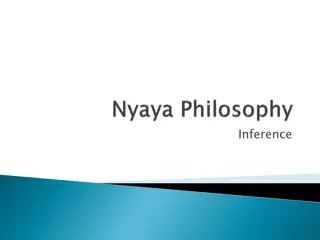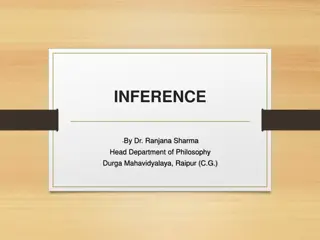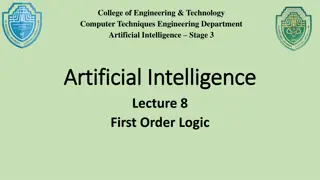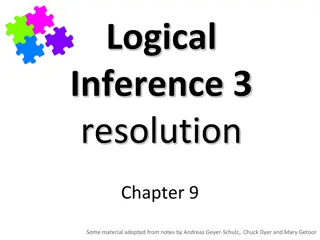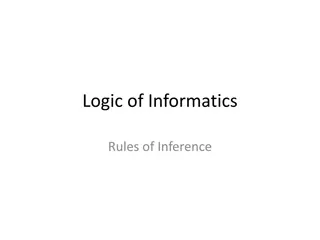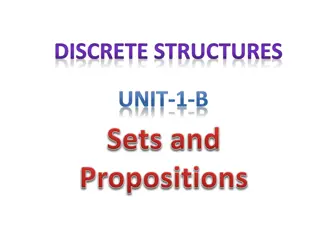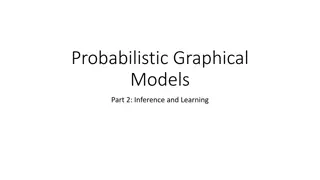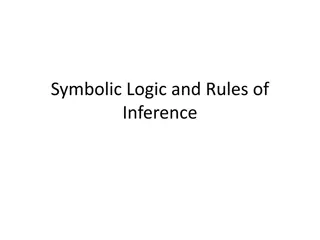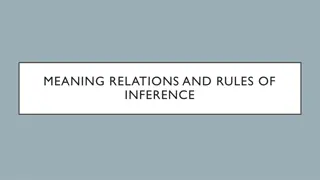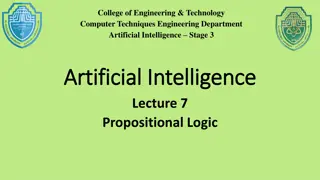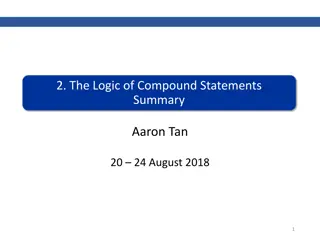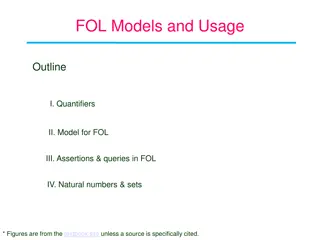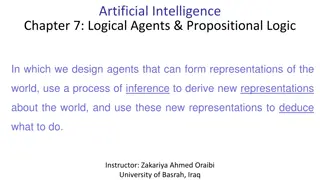Understanding Logical Inference: Resolution in First-Order Logic
Resolution in logic is a crucial inference procedure that is both sound and complete for unrestricted First-Order Logic. It involves deriving resolvent sentences from clauses in conjunctive normal form by applying unification and substitution. This approach covers various cases such as Modus Ponens, Chaining, Contradiction detection, and Resolution refutation, providing a powerful tool for logical reasoning.
Download Presentation

Please find below an Image/Link to download the presentation.
The content on the website is provided AS IS for your information and personal use only. It may not be sold, licensed, or shared on other websites without obtaining consent from the author. Download presentation by click this link. If you encounter any issues during the download, it is possible that the publisher has removed the file from their server.
E N D
Presentation Transcript
Logical Inference 3 resolution Chapter 9 Some material adopted from notes by Andreas Geyer-Schulz,, Chuck Dyer, and Mary Getoor
Resolution Resolution is a sound and complete inference procedure for unrestricted FOL Reminder: Resolution rule for propositional logic: P1 P2 ... Pn P1 Q2 ... Qm Resolvent: P2 ... Pn Q2 ... Qm We ll need to extend this to handle quantifiers and variables
Two Common Normal Forms for a KB Implicative normal form Set of sentences expressed as implications where left hand sides are conjunctions of 0 or more literals P Q P Q => R Conjunctive normal form Set of sentences expressed as disjunctions literals P Q ~P ~Q R Recall: literal is an atomic expression or its negation e.g., loves(john, X), ~ hates(mary, john) Any KB of sentences can be expressed in either form
Resolution covers many cases Modes Ponens from P and P Q derive Q from P and P Q derive Q Chaining from P Q and Q R derive P R from ( P Q) and ( Q R) derive P R Contradiction detection from P and P derive false from P and P derive the empty clause (= false)
Resolution in first-order logic Given sentences in conjunctive normal form: P1 ... Pn and Q1 ... Qm Pi and Qi are literals, i.e., positive or negated predicate symbol with its terms if Pj and Qkunify with substitution list , then derive the resolvent sentence: subst( , P1 Pj-1 Pj+1 Pn Q1 Qk-1 Qk+1 Qm) Example from clause P(x, f(a)) P(x, f(y)) Q(y) and clause P(z, f(a)) Q(z) derive resolvent P(z, f(y)) Q(y) Q(z) Using = {x/z}
A resolution proof tree ~P(w) v Q(w) ~Q(y) v S(y) ~True v P(x) v R(x) P(x) v R(x) ~P(w) v S(w) ~R(w) v S(w) S(x) v R(x) S(A) v S(A) S(A)
Resolution refutation (1) Given a consistent set of axioms KB and goal sentence Q, show that KB |= Q Proof by contradiction: Add Q to KB and try to prove false, i.e.: (KB |- Q) (KB Q |- False)
Resolution refutation (2) Resolution is refutation complete: can show sentence Q is entailed by KB, but can t always generate all consequences of a set of sentences Can t prove Q is not entailed by KB Resolution won t always give an answer since entailment is only semi-decidable And you can t just run two proofs in parallel, one trying to prove Q and the other trying to prove Q, since KB might not entail either one
Resolution example KB: allergies(X) sneeze(X) cat(Y) allergicToCats(X) allergies(X) cat(felix) allergicToCats(mary) Goal: sneeze(mary)
Refutation resolution proof tree allergies(w) v sneeze(w) cat(y) v allergicToCats(z) allergies(z) w/z cat(y) v sneeze(z) allergicToCats(z) cat(felix) y/felix sneeze(z) v allergicToCats(z) allergicToCats(mary) z/mary sneeze(mary) sneeze(mary) Notation old/new false negated query
Some tasks to be done Convert FOL sentences to conjunctive normal form (aka CNF, clause form): normalization and skolemization Unify two argument lists, i.e., how to find their most general unifier (mgu) q: unification Determine which two clauses in KB should be resolved next (among all resolvable pairs of clauses) : resolution (search) strategy



